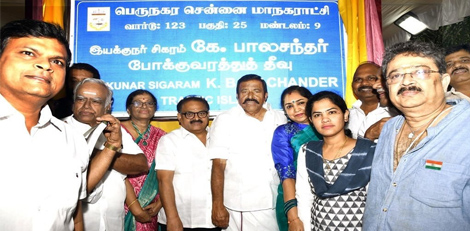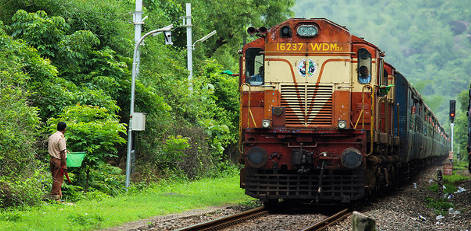Come New Year, T. Nagar to turn green with native trees
Posted on: 29/Dec/2018 10:12:38 AM

T. Nagar is an important locality in the city of Chennai with many residential and commercial establishments. Theagaraya Road present in T. Nagar is a very busy road and in the upcoming New Year this road would become green. As a part of Smart City project, more than 10 species belonging to native trees would be planted on this road and it would be the first time in Chennai that this would be taking place. According to an official of GCC or Greater Chennai Corporation, last month the existing trees along the 1.5km stretch were trimmed and from the next month of January the work on planting fully grown saplings would start.
A non-governmental organisation, Care Earth Trust, has been sensational in the last 15 years as they are involved in the conservation of bio-diversity. The information got is this trust had conducted a study on the age, species and on the health condition of the existing trees and suggested about the species of trees to be planted. Mr. Muthu Karthick, team leader (botany), Care Earth Trust, shared his views. He spoke about how in Chennai a single stretch would not have more than 2 native trees. He opened out on the fact that the non-native trees cannot withstand the extreme conditions. Mr. Muthu Karthick later shed light on how during the Wardah cyclone 90% of the trees that were uprooted belonged to non-native type. He hoped that the green drive on the Theagaraya Road would set an example for the other streets to follow that.
An official belonging to GCC expressed his thoughts and spoke about how around Rs 33.8 crores were invested in the construction of pedestrian plaza on the stretch that would have pedestrian friendly pathways plus benches and play area on the Theagaraya Road. He explained the reason for selecting indigenous species and said natural shade provided by them was considered as a factor for selecting them. There are as many as 119 trees present on the stretch and it is now revealed that 6 of them would be felled due to the fact that they are more than 60 years old and have become weak. The important point is in January 2019 more than 50 saplings of 16 species would be planted along the stretch.
As per the study conducted by the Care Earth trust, a hollow core has developed in those trees that have been around for 50 years above. The pests and age have been responsible for the heartwood to degrade. For longer time these trees would not be able to withstand damage or diseases etc. Many construction activities have been taking place in the zone in addition to the laying of ducts. This has caused huge damage to the root system and has aggravated the situation.







